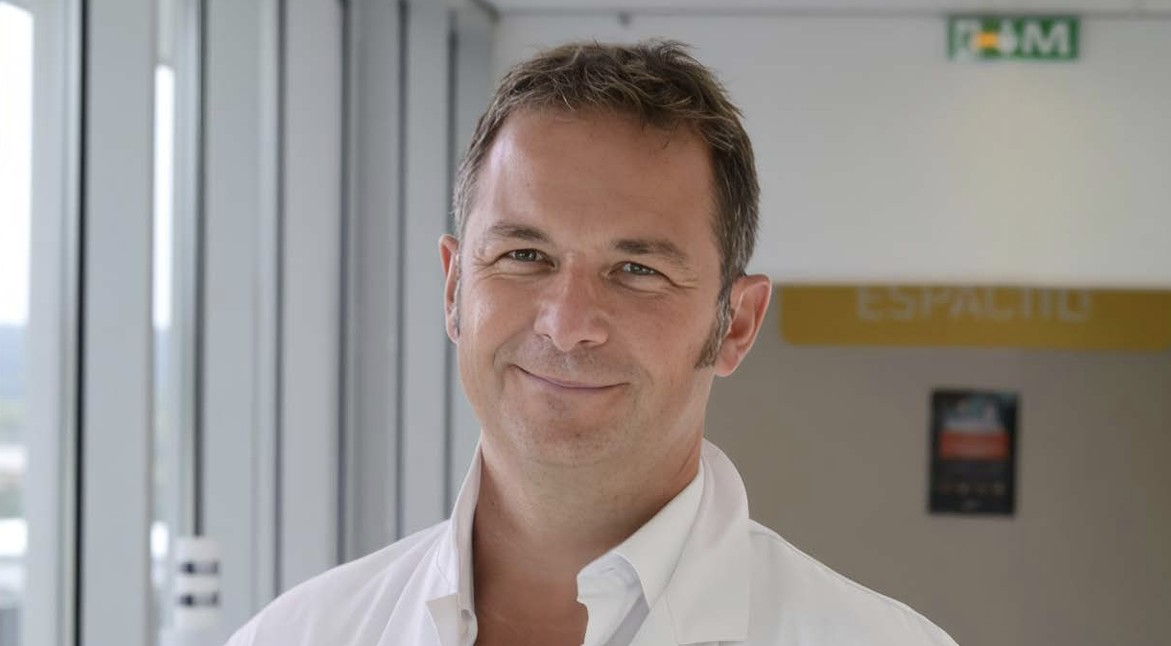In the OncoDaily Magazine’s October Issue we feature a conversation with Prof Florian Scotté from Comfort Corner series with Dr Martin Harutyunyan, highlighting the role of patient centered care in oncology.
“I live for patients. If we keep that in mind, we never lose our way.”
When Prof. Florian Scotté talks about supportive care, his words carry both conviction and humility. Now leading supportive care at Gustave Roussy and serving as President of the Multinational Association of Supportive Care in Cancer (MASCC) since June 2024, he has built his career around one message that has become his signature:
“Supportive care makes excellent cancer care possible.”
A Journey Shaped by Patients
Prof. Scotté began his career like many young oncologists, focused on treating tumors. But very quickly, he realized something deeper was at stake.
“When I started medical oncology, I recognized the importance of supportive care and cancer management. I became interested in G-CSF, antiemetics, and organizing support around patients and their carers. That’s when I understood: the real work is not only treating the cancer but also alleviating suffering.”
His first clinical trial in 2003 explored an unusual but effective solution for chemotherapy-induced skin and nail toxicity: frozen gloves and socks during docetaxel therapy. The project, later presented at ASCO 2004, was a turning point.
“It was my first trial, and it showed me how even small innovations in supportive care can change patients’ daily lives,” he recalls.
From Paris’s Georges Pompidou European Hospital to AP-HP, Prof Scotté helped establish France’s first dedicated supportive care units. By 2020, he moved to Gustave Roussy to create something unprecedented: an interdisciplinary department uniting intensive care, emergency services, ambulatory oncology, navigator nurses, and specialized supportive care under one roof. Today, 350 professionals work in this division, offering everything from nutrition and psycho-oncology to palliative interventions and home-based care.
What Patient-Centered Care Really Means
Asked how supportive care should be defined, Prof. Scotté does not mince words.
“We have to stop separating curative intent, palliative intent, supportive intent… The main purpose is patient-centered care. Our daily goal is simple: to support the patient and their caregivers.”
At Gustave Roussy, this vision has become reality. Before their first oncology consultation, patients complete self-assessments across nine domains: physical symptoms, autonomy, psychological status, prior treatments, and more. Those flagged as complex cases spend a full day with a team that might include an oncologist, nurse, dietitian, and physical activity educator. At the end, they leave with a personalized care pathway.
“If we focus only on physical symptoms, we miss the door to psychological and social problems,” he explains. “Supportive care is about seeing the whole person.”
The Global Dimension: MASCC and Beyond
Prof. Scotté’s mission extends far beyond France. As MASCC President, he sees the association’s diversity as its strength.
“Patients come from Africa, Asia, America, and Europe. Their circumstances differ, but they all deserve quality care. Learning from different systems – how Morocco approaches care, or how Armenia adapts with fewer resources – enriches us all.”
He emphasizes the urgency of studying toxicities from emerging drugs.
“We are moving so quickly, from chemotherapy to targeted treatments and immunotherapies. Managing safety and toxicities must keep pace with the science.”
His priority is to expand MASCC’s study groups in this area, while also building affiliates and centers of excellence in underserved regions.
On Leadership, Resilience, and Hope
Supportive care means walking daily with patients through some of their hardest moments. How does he stay resilient?
“I live for patients like every healthcare professional. If we keep our goal clear – to support patients and their caregivers – we do not lose our way.”
For Prof. Scotté, resilience also comes from teamwork.
“Supportive care is so rich because it is multidisciplinary. Physicians, nurses, pharmacists, dieticians – we carry the burden together, and that’s how we continue.”
As he looks ahead, his philosophy remains rooted in empathy and progress.
“What we do in developed countries can be of interest for low-income countries. We are a family with MASCC. We must all work and live together.”
Prof. Scotté reminds us that cancer care cannot be delivered in pieces. While the disease is dissected into pathways for research, care must remain whole and patient-centered. Patients need truly holistic support. Let this interview serve as a reminder what excellence in oncology means…
Interview by Martin Harutyunyan, Medical Oncologist and Supportive Care Specialist, Director of OncoDaily LA
Redacted by Elen Baloyan, MD, Editor-in-Chief of OncoDaily Magazine


